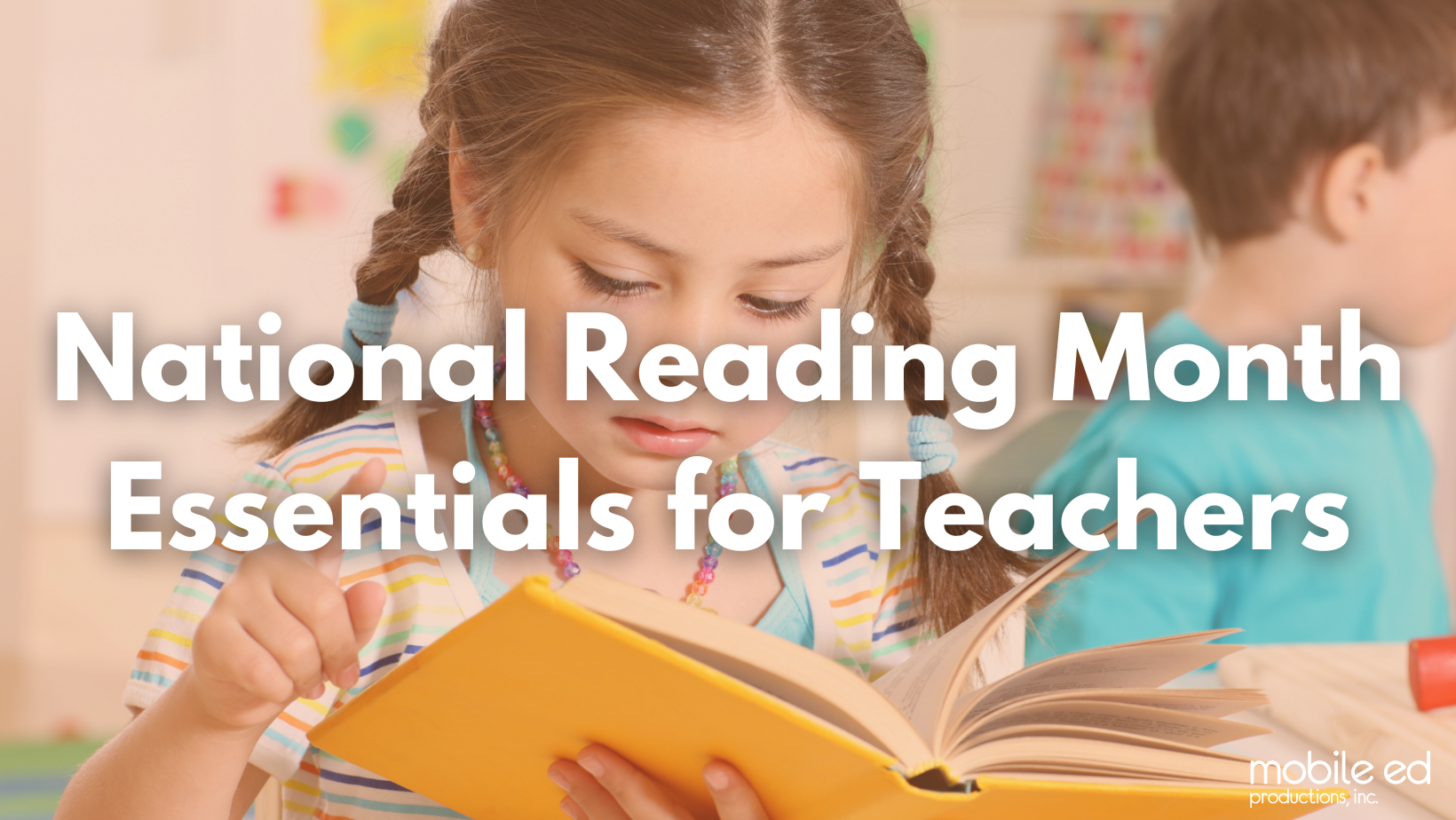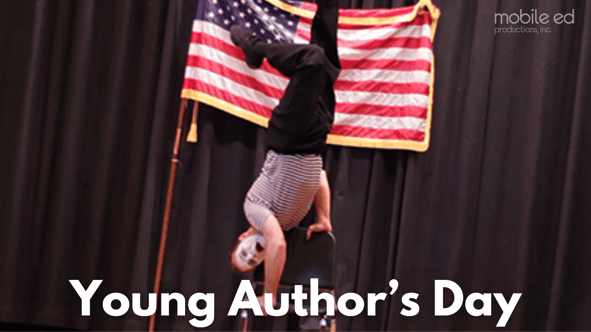
“In the case of good books, the point is not to see how many of them you can get through, but rather how many can get through to you.”
—Mortimer J. Adler
Whether you have students who are learning to read, are advanced readers, or can’t read at all yet, National Reading Month is an essential opportunity for all of our young learners. Though many of us teach language arts year-round, this month is a great time to build excitement and motivation around the simple act of reading. Mobile Ed has a few resources you're going to want to have on hand for National Reading Month.
March was designated as National Reading Month after Dr. Seuss’s March-2nd birthday. The well-known author and illustrator has more than 60 books published, and honoring the writer encourages Americans of all ages to read every day during March. Though our classrooms incorporate reading and writing all year long, we have a few activities we like to do when March comes around to mix up our regular reading routines.
Reading is essential to our students’ academic and personal growth, so why not make it fun? According to an article from Merrimack College, consistent reading at a young age can:
-
-
- Enhance memory skills
- Improve critical thinking ability
- Better concentration
- Advance vocabulary
- Increase independence
- Grow self-esteem
-
Continue reading for Mobile Ed’s list of March Reading Month essentials:
-
-
-
- Book Recommendations. Grab a list of age-appropriate reads for your students if you don't have one on hand already. Oftentimes, students don't know where to start when it comes to choosing their next book. Researching and providing appropriate books for your students to choose from will make sure your reading month is off to a great start. Find book recommendations by age here.
-
-
-
-
-
- Bookmarks. If students don’t have one already, bring out the fun and silly bookmarks for your students to use! You can access free bookmarks here. Better yet, have students design their own bookmarks! Taking time to make fun and personalized bookmarks will make it more likely that they’ll want to use it.
-
-
-
-
-
- Read-a-Louds. Read-a-louds are the most significant activity contributing to reading success. During read-a-louds, young students can listen on a higher level than they can read, exposing them to more challenging speech patterns and vocabulary that work to grow their fluency and knowledge of the world. It's normal for students to take some time to find genres they enjoy, places they're comfortable, and to get focused when reading independently. Read-a-louds are an opportunity to increase focus, advance fluency and knowledge, and build a stronger community in your classroom.
-
-
-
-
-
- Goals. Reading goals are a simple way to get students reading and create a habit of it. Reading goals don't have to be just page numbers; they can include things they want to learn about, genres to try, or even a new author to explore. However having goals for students helps emphasize the importance of reading, builds healthy habits, and practices the life-long skill of goal-setting.
-
-
-
-
-
- Library Visits. Libraries are considered the “largest classroom." Students can find countless resources, comfortable and safe spaces to learn, ask questions, talk with tutors, and use different technologies. In addition, getting out of the classroom is exciting for students of all ages! Making time to visit your school or local library to allow students to experience the benefits of their libraries will equip them as future learners, readers, and citizens.
-
-
-
-
-
- Reading Space. One barrier to independent reading for some students is their space. If possible, create comfy and cozy reading spaces for your students to focus and enjoy their books with pillows, blankets, lighting, and background music.
-
-
-
-
-
- Book-to-Movie Adaptations. A fun and simple way to reward reading and improve comprehension is to read a book and then watch the adaption to see it come to life or compare it to the book!
-
-
Mobile Ed Productions, Inc. provides over 40 different learning programs for schools and educational facilities, but one of our personal favorites is our Young Author’s Day program. In our Young Author’s Day program, one of our classically-trained mime performers will visit your school for a unique presentation using the “art of silence”. Students learn what it means to write a story and will have the opportunity to write one themselves in this interactive assembly. The program will end with your students' stories that they wrote earlier that day performed for everyone! This program is also available virtually.
In the Young Author’s Day program, students will learn:
- Components and structure of a story
- Differences between writing for the stage and writing for the page
- How to write their own stories (with assistance from the performer)
Contact Mobile Ed here to see if Young Author's Day is touring your state!







